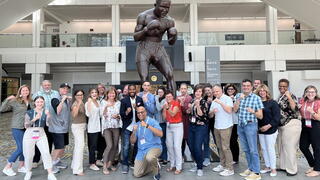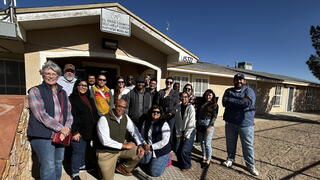
Apply today for an opportunity to help improve economic mobility in your community with a $20,000 grant.
Presentation slides from the 4-26-24 program overview and Q&A session with ICMA staff.

Selected local governments will receive $20,000, networking opportunities, and training to support local actions through January 2025.
Instructions and application information for the 2024 ICMA Economic Mobility Peer Learning Cohort and Grant Program
ICMA’s Economic Mobility and Opportunity (EMO) Cohort is an opportunity for ICMA members to implement EMO-centered strategies through policies, practices, processes, and programs.
ICMA’s Economic Mobility and Opportunity (EMO) Cohort is an opportunity for ICMA members to implement EMO-centered strategies through policies, practices, processes, and programs.
Future Proofing Local Government: Strategies for Sustainable Innovation

Three counties in ICMA’s Economic Mobility and Opportunity Cohort elaborate on their reimagined approaches to boosting the upward mobility of their residents.
This episode of Voices in Local Governments covers grant funding and technical assistance for brownfields projects, and previews Brownfields Conference 2023.
